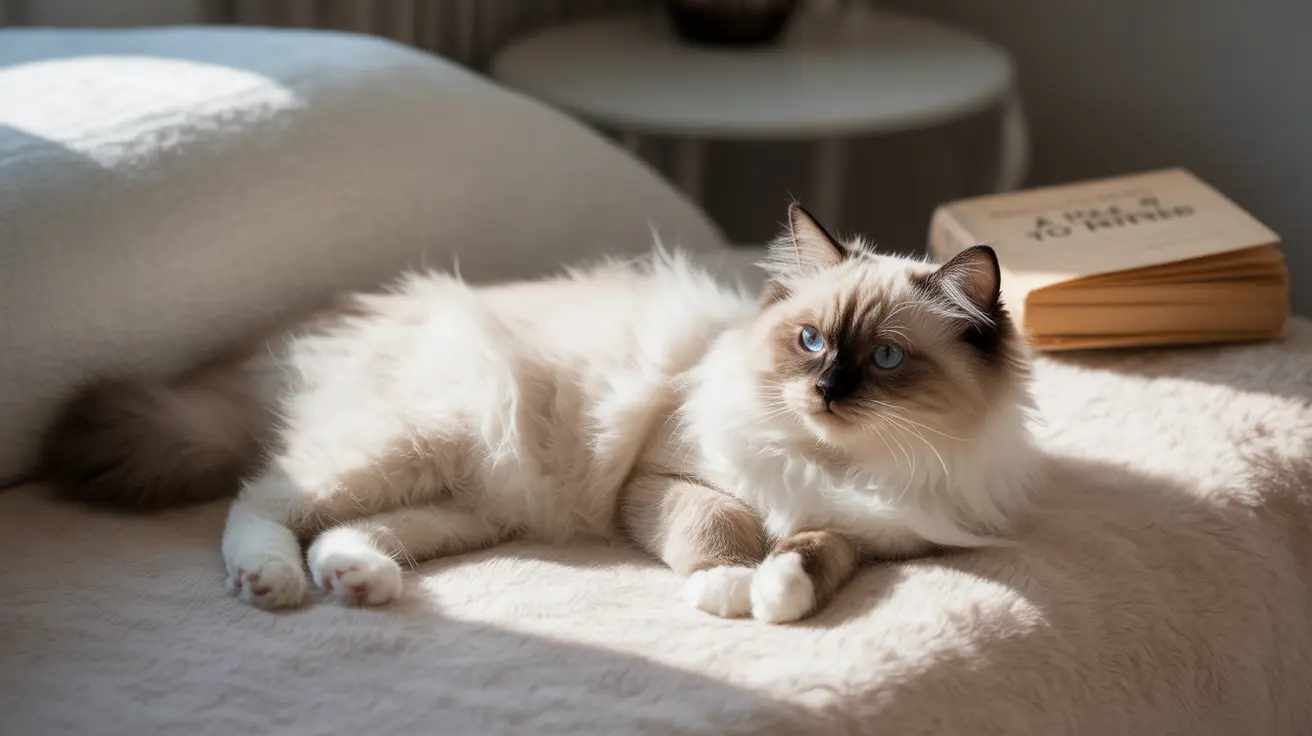Understanding Feline Concussions
A concussion occurs when a cat experiences sudden trauma to the head, causing the brain to bounce or twist within the skull. This movement can lead to chemical changes and temporary disruption of normal brain function. While cats are naturally agile and often land on their feet, they're not immune to head injuries, especially in accidents or falls from heights.
Common Causes of Cat Concussions
Several situations can put cats at risk for concussions:
- Falls from high places (windows, balconies, trees)
- Car accidents or being hit by vehicles
- Fights with other animals
- Being accidentally stepped on or hit by falling objects
- High-rise syndrome incidents
Signs and Symptoms to Watch For
Immediate Warning Signs
- Disorientation or staggering
- Vomiting
- Unequal pupil sizes
- Loss of consciousness
- Seizures
Behavioral Changes
- Lethargy or unusual sleepiness
- Personality changes
- Lack of interest in food or water
- Confusion or difficulty recognizing familiar people
Emergency Treatment and Care
If you suspect your cat has a concussion, immediate veterinary care is essential. The first 24-48 hours are critical for proper diagnosis and treatment.
What Your Vet Will Do
- Perform a neurological examination
- Check vital signs and assess consciousness
- Possibly conduct imaging tests (X-rays, CT scans)
- Monitor for additional injuries
Recovery and Long-term Care
Recovery from a concussion requires patience and careful monitoring. Your veterinarian will create a specific treatment plan that may include:
- Restricted activity and quiet rest
- Pain management medications
- Regular monitoring of neurological functions
- Gradual return to normal activities
Prevention Strategies
While accidents can happen, many concussions are preventable with proper precautions:
- Install secure window screens
- Keep balcony doors closed or supervised
- Create safe climbing spaces with proper landing areas
- Maintain indoor-only status for cats when possible
- Keep unstable objects secured
Frequently Asked Questions
Can cats get concussions from falls or accidents, and what are the common causes?
Yes, cats can get concussions from falls, accidents, and other trauma. Common causes include falls from heights, vehicle accidents, fights with other animals, and being hit by falling objects. Indoor cats can also suffer concussions from household accidents.
What signs and symptoms should I look for if I suspect my cat has a concussion?
Key symptoms include disorientation, unsteady walking, vomiting, unequal pupil sizes, lethargy, personality changes, and loss of consciousness. Any sudden behavioral changes following head trauma should be taken seriously.
How do veterinarians diagnose concussions and head trauma in cats?
Veterinarians diagnose concussions through neurological examinations, assessment of symptoms, and possibly imaging tests like X-rays or CT scans. They'll also check for other injuries that might have occurred during the accident.
What immediate steps should I take if I think my cat has suffered a concussion?
Keep your cat calm and quiet, minimize movement, and seek immediate veterinary care. Don't attempt to give any medication without veterinary approval, and transport your cat carefully to avoid further injury.
How can I prevent concussions and head injuries in indoor and outdoor cats?
Install secure window screens, supervise balcony access, create safe climbing spaces, and keep unstable objects secured. For outdoor cats, consider transitioning them to indoor living or creating a secure outdoor enclosure.
Remember, when it comes to potential head injuries in cats, it's always better to err on the side of caution and seek professional veterinary care promptly. Quick action can make a significant difference in your cat's recovery and long-term health.






